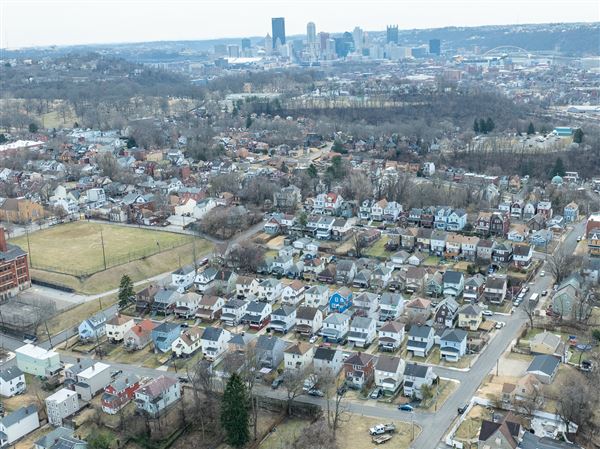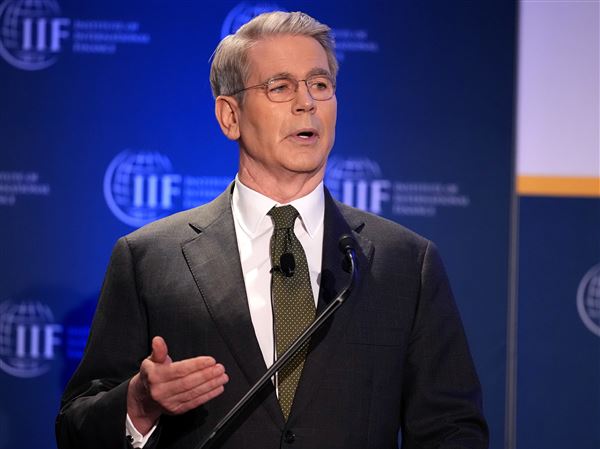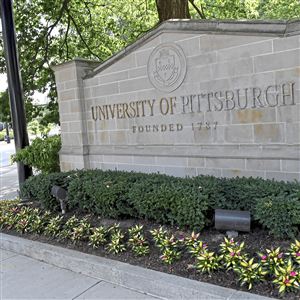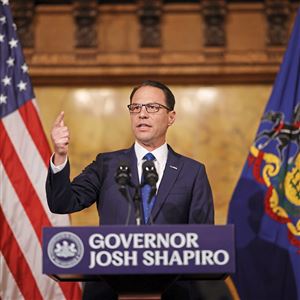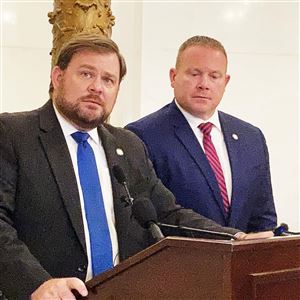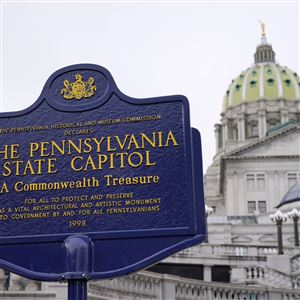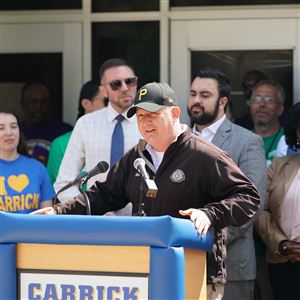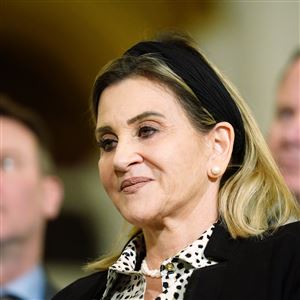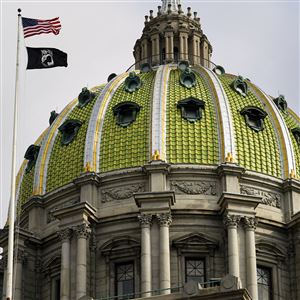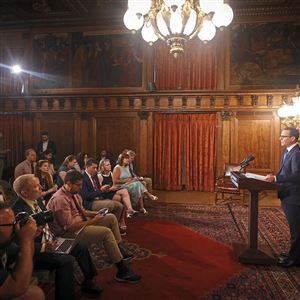HARRISBURG — The state Senate on Thursday sent a $45.45 billion spending bill to Gov. Josh Shapiro, who immediately signed it, but Republicans said more than $1 billion of the spending couldn’t happen without additional legislation.
The action by the Senate and Mr. Shapiro’s signature were significant steps toward ending an impasse that had left the state without a budget in place for the first month of the 2024 fiscal year. But obstacles remained, including the need to pass legislation necessary to allow a significant chunk of the money to actually be spent.
Republicans put the amount at about $1.1 billion. Mr. Shapiro, a Democrat, said it was less than 1% of the overall investment in the budget.
Mr. Shapiro used a line-item veto to eliminate $100 million in the bill for a voucher-style school scholarship program — a concept he previously supported but backed away from after a top Democrat in the House said it would not be supported there.
“The people of Pennsylvania have entrusted me with the responsibility to bring people together in a divided legislature and to get things done for them — and with this common sense budget, that’s exactly what we’ve done,” Mr. Shapiro said in a written statement.
He highlighted — among many other items — a $567 million increase in basic education funding for school districts, $100 million for Level Up funding for the state’s most needy school districts, $50 million for the Whole-Home Repairs program that began last year with federal funding, and a $46.5 million increase for universal free breakfast in schools and free lunches for qualified students.
Mr. Shapiro’s veto of the money for the scholarship program came with a hint he was open to it in the future. His veto message said he did not want to hold up the whole budget because Republicans and Democrats could not agree on that one issue.
“Improving and expanding opportunities for children remains a priority for me, and I consider this to be unfinished business all parties must work together on as we move forward,” Mr. Shapiro said. He acknowledged there was more work to be done on a “few bipartisan priorities awaiting further legislative language.” But he said those represented less than 1% of the overall investment in the budget.
Mr. Shapiro said he expected the House — control of which was left in a 101-101 tie after Democrat Sara Innamorato’s resignation last month — and the Senate to deliver the necessary “code bills” enabling completion of the budget spending, as well as legislation funding the University of Pittsburgh and other state-related universities.
But a significantly different tone — one that portrayed the budget as being far from done — came from Republican Sens. Joe Pittman, the majority leader, and Scott Martin, the Appropriations Committee chairman.
“This is not a final, completed product,” said Mr. Pittman, R-Indiana. “There is more work to do.”
Mr. Pittman said money would be “sequestered” for a number of items until additional legislation was passed. Those included the Whole-Home Repairs program, criminal indigent defense, school mental health grants, teacher stipends and Level Up funds.
The brief session Thursday was the latest chapter in a budget battle that was prolonged by a split between Senate Republicans and Mr. Shapiro over the voucher-style school scholarship program. Mr. Shapiro, after previously supporting the concept, said on July 5 he would exercise a line-item veto for it in the spending bill.
The spending bill, which had already been passed by the Senate and House, still needed a procedural signature in the Senate, and it got that Thursday before being sent to Mr. Shapiro.
Sen. Jay Costa, D-Allegheny and the minority leader, said the bill would provide money for schools, senior programs, human services providers and public safety programs, among other things.
And Mr. Costa disagreed with Republicans on the need for more legislation — via a bill called the “fiscal code” — on at least some of the “sequestered” items. Specifically, he mentioned the Whole-Home Repairs and Level Up programs. “We think it can be done without a fiscal code,” he said.
But Mr. Pittman’s office distributed a memo from state Budget Secretary Uri Monson, dated Wednesday, that said Mr. Monson “will not release funding for certain programs” without additional legislative language. Those programs included Level Up and Whole-Home Repairs.
The need for more legislation on some items could create pressure for lawmakers to return to Harrisburg sooner than previously anticipated. The Senate adjourned Thursday until Sept. 18, and House members are not due back in Harrisburg until Sept. 26.
Control of the House will remain tied until the winner of the Sept. 19 special election to replace Ms. Innamorato is seated. Democrats are expected to easily retain control of the seat in the heavily Democratic district.
Ford Turner: fturner@post-gazette.com
First Published: August 3, 2023, 6:45 p.m.
Updated: August 4, 2023, 2:45 p.m.


